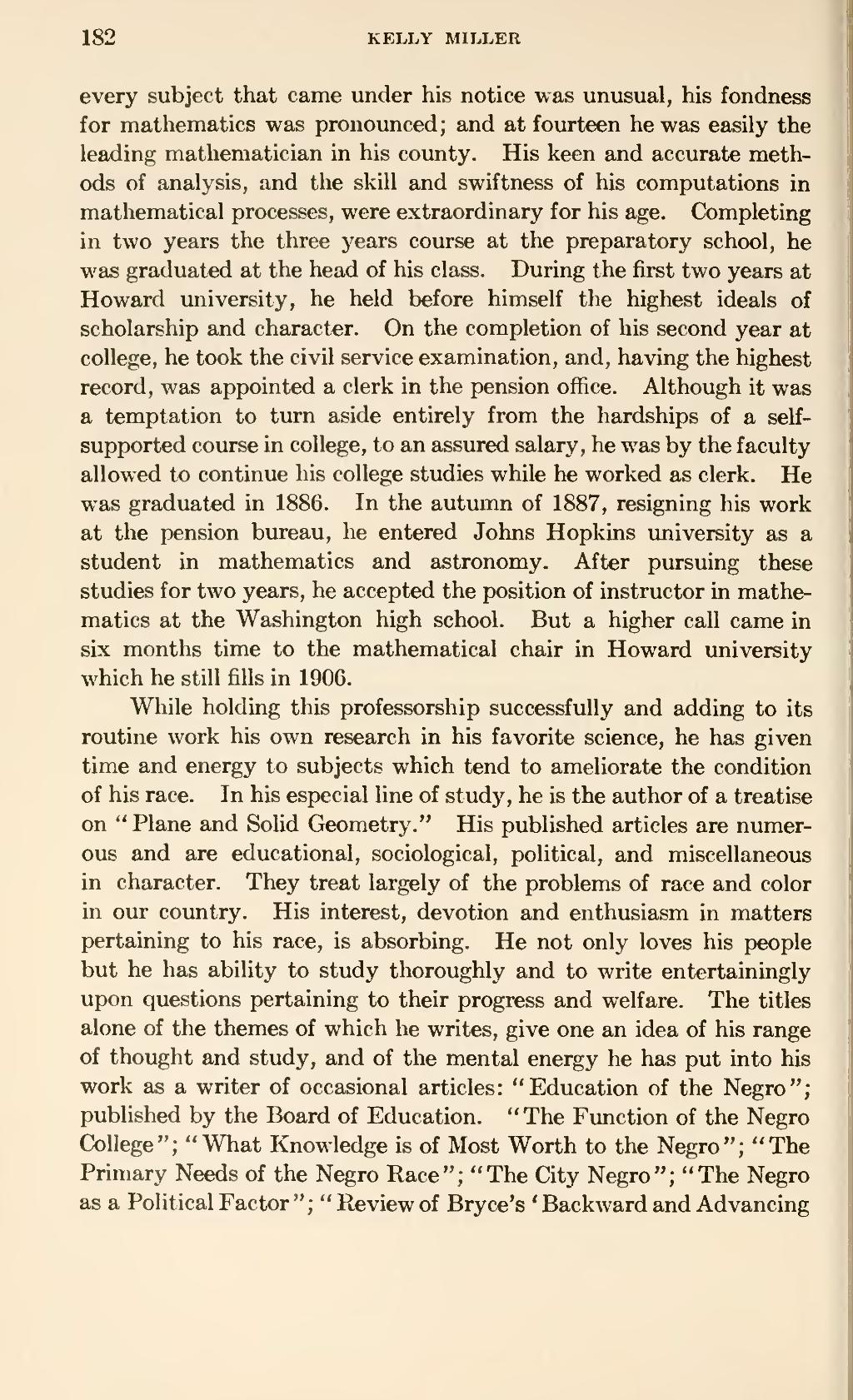every subject that came under his notice was unusual, his fondness for mathematics was pronounced; and at fourteen he was easily the leading mathematician in his county. His keen and accurate methods of analysis, and the skill and swiftness of his computations in mathematical processes, were extraordinary for his age. Completing in two years the three years course at the preparatory school, he was graduated at the head of his class. During the first two years at Howard university, he held before himself the highest ideals of scholarship and character. On the completion of his second year at college, he took the civil service examination, and, having the highest record, was appointed a clerk in the pension office. Although it was a temptation to turn aside entirely from the hardships of a self-supported course in college, to an assured salary, he was by the faculty allowed to continue his college studies while he worked as clerk. He was graduated in 1886. In the autumn of 1887, resigning his work at the pension bureau, he entered Johns Hopkins university as a student in mathematics and astronomy. After pursuing these studies for two years, he accepted the position of instructor in mathematics at the Washington high school. But a higher call came in six months time to the mathematical chair in Howard university which he still fills in 1906.
While holding this professorship successfully and adding to its routine work his own research in his favorite science, he has given time and energy to subjects which tend to ameliorate the condition of his race. In his especial line of study, he is the author of a treatise on "Plane and Solid Geometry." His published articles are numerous and are educational, sociological, political, and miscellaneous in character. They treat largely of the problems of race and color in our country. His interest, devotion and enthusiasm in matters pertaining to his race, is absorbing. He not only loves his people but he has ability to study thoroughly and to write entertainingly upon questions pertaining to their progress and welfare. The titles alone of the themes of which he writes, give one an idea of his range of thought and study, and of the mental energy he has put into his work as a writer of occasional articles: "Education of the Negro"; published by the Board of Education. "The Function of the Negro College"; "What Knowledge is of Most Worth to the Negro"; "The Primary Needs of the Negro Race"; "The City Negro"; "The Negro as a Political Factor"; "Review of Bryce's ’Backward and Advancing
